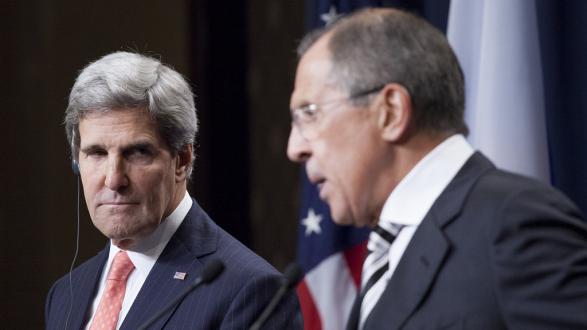In:
Global Beat is your weekly stop for news from around the world. Join us every Friday morning for important stories you should know about.
This week, Russia and the United States accuse each other of violating the new ceasefire in Syria; President Obama says sanctions against Myanmar will be lifted; Japan invests $30 billion in Africa; and more.
____________________
Americas
Canada has approved a controversial but empirically researched program to combat the country’s growing opioid crisis: legal, prescription heroin. Addicts who are resistant to other forms of treatment will be allowed to go to a clinic in Vancouver where they can safely inject pharmaceutical-grade heroin under the watch of medical professionals. The practice has been in effect in several European countries for years, with the goal of reducing the risk of overdose, HIV transmission, and petty crime associated with drug use.
Also check out:
- U.S. confirms two more freed Guantanamo inmates rejoined militant groups – Mark Hosenball, Reuters
Central & South Asia
India pledged $1 billion in economic aid to Afghanistan this week during Afghan President Ashraf Ghani’s visit to New Delhi. The two countries also signed a treaty that allows them to extradite criminals, economic offenders, and people linked to terrorist activity. Indian Prime Minister Narendra Modi said the aid shows India’s "abiding support for a unified, sovereign, democratic, peaceful, stable, and prosperous Afghanistan." Afghanistan is hosting a conference with the European Union on October 5 in Brussels to seek funding for reforms.
Also check out:
- 'Big success story': Sri Lanka is declared free of malaria – Donald McNeil, Jr., The New York Times
China & East Asia
As the United States pivots to Asia, many Asian allies are pivoting towards China. Chinese Vice Foreign Minister Liu Zhenmin said relations with the Philippines are at a turning point following growing tensions between the island nation and the United States. Philippine President Rodrigo Duterte has called for U.S. troops to leave southern Philippines, scrapped a deal his predecessor reached with the U.S. military earlier this year, and called U.S. officials – including President Obama – offensive names. Meanwhile, Chinese President Xi Jinping told Vietnamese Prime Minister Nguyen Xuan Phuc this week that their common interests far outweigh differences, and that their dispute in the South China Sea can be resolved through diplomacy.
Also check out:
- Opposition figure’s rise could pave way for female leaders in Japan – Motoko Rich, The New York Times
Europe & Russia
About 80 German right-wingers and 20 asylum seekers clashed in the eastern city of Bautzen on Wednesday, hurling bottles and insults at each other. About one million migrants have arrived in Germany in the past year. German Chancellor Angela Merkel is facing growing criticism over the government’s slow progress to integrate migrants into the workforce. Germany’s federal police force says there have been 700 attacks on migrant housing this year.
Also check out:
Middle East & North Africa
Russia and the United States are already accusing each other of violating the ceasefire in Syria, which was just enacted on Monday. The ceasefire was called so that desperately needed humanitarian aid could be delivered, but the United Nations said the Syrian government is blocking aid convoys, another violation of the ceasefire.
Also check out:
- Houthis study U.S. truce proposal for Yemen – Katie Paul, Reuters
Southeast Asia & Oceania
President Obama said Wednesday that the United States will lift trade sanctions against Myanmar as the country’s de facto leader, Aung San Suu Kyi, arrived in Washington on her first official visit. Officials hope the move will encourage foreign investment in Myanmar as the country struggles to establish democracy following decades of ethnic strife. Human rights advocates say the move is premature because the military still has significant influence in governance.
Also check out:
- Fiji’s Peter Thomson assumes presidency of UN General Assembly – Associated Press
Sub-Saharan Africa
Japanese President Shinzō Abe announced that his government and the private sector will invest $30 billion in Africa over the next three years. The funds are intended for infrastructure development, education, and healthcare expansion across the continent. The announcement comes as Japan seeks to increase trade with African nations. In 2015, Chinese trade in Africa totaled approximately $179 billion, while Japanese trade stood at $24 billion.
Also check out:
- Anti-gay Arizona pastor who welcomed the June shooting at Orlando’s Pulse nightclub banned from visiting South Africa – Wendell Roelf, Huffington Post




